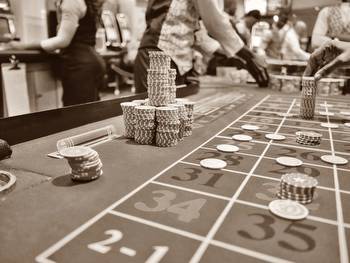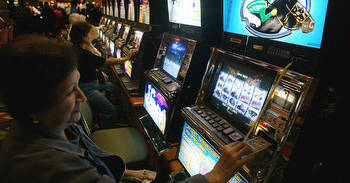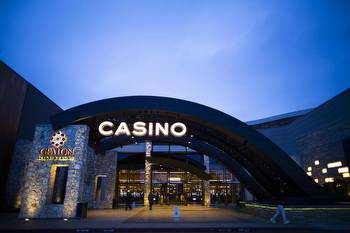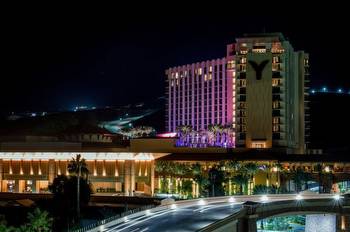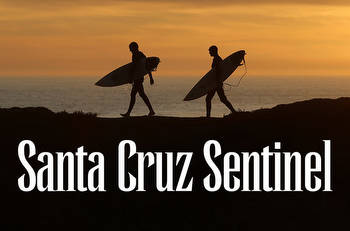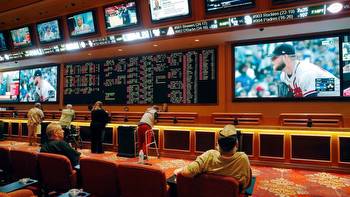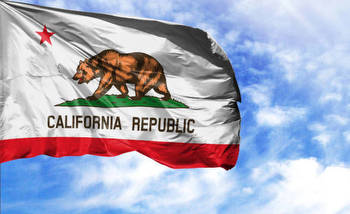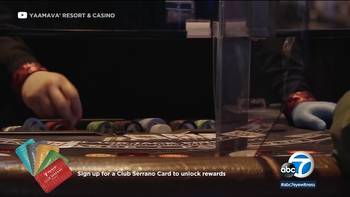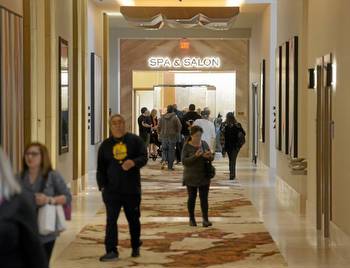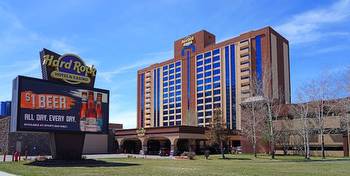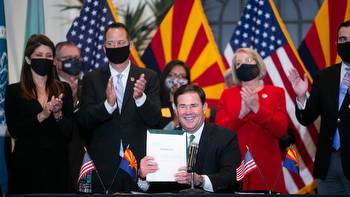San Jose leaders say no to statewide gambling measures

Bay 101 in San Jose is pictured in this file photo.
Two statewide propositions to legalize and expand sports betting are coming to voters in November—San Jose officials oppose both of them.
The city council unanimously voted earlier this week to oppose Props. 26 and 27, viewing them as having a negative impact on San Jose casinos and reducing revenue gambling generates for the city.
Prop. 26 would allow California’s tribal casinos and the state’s four thoroughbred racetracks to take in-person bets for sporting events and pay out winnings. Currently there are no legal establishments for sports betting, known as sportsbooks, in California. Prop. 26 would also give tribal casinos legislative authority to sue legal cardrooms accused of illegal gaming within the operation such as off-book sports betting.
Prop. 27 would legalize sports betting statewide through online sportsbooks and mobile apps. Online revenue would be taxed at 10% after various deductions including regulatory costs, licensing fees, prizes and renewal fees. Of the remaining funds, 85% would go to undefined permanent and interim housing needs, and 15% to tribes for expanding tribal government, public health, education, infrastructure and economic development.
For Councilmember Dev Davis, the central concern is city revenue. San Jose collects 16.5% in revenue tax from its two cardrooms— Casino M8trix and Bay 101—generating about $15 million annually for the city.
“These new measures could force them out of business and we do not want to lose revenue,” Davis told San José Spotlight. “It expands the ability of the casinos that are not in San Jose to do business, so it makes them more attractive. And it’s very possible that we could lose business that way.”
The other potential threat from Prop. 26 is an expansion of the Private Attorneys General Act to allow tribal casino operators to pursue lawsuits against local, legally operating cardrooms, potentially bankrupting businesses, city officials said.
Impact on businesses
Ron Werner, general manager of Bay 101, said tribal casinos could use frivolous lawsuits as harassment tactics to threaten and run non-tribal casinos out of business, especially smaller operations.
“It’s death by attrition, death by lawsuit,” Werner told San José Spotlight. “The tribes could bring frivolous lawsuits, to try and (run the competition out of business) and some cardrooms won’t be able to afford that cost.”
Werner also said the measures don’t give equal opportunity to all cardrooms. If Props. 26 and 27 were to pass, non-tribal casinos, some racetracks and other legal cardrooms wouldn’t be able to participate in sports betting.
“They’re both initiatives that are written for special interest groups. They don’t provide any benefit to the people of California,” Werner said. “We’re not opposed to sports betting per se, we’re opposed to continuing a monopoly for special interest groups.”
The coalition supporting Prop. 26 is led by several Native American tribes who would benefit from the measure, including the Pechanga Band of Luiseno Indians, Yocha Dehe Wintun Nation and the Barona Band of Mission Indians. The coalition has raised $73.08 million in campaign funds.
“Prop. 26 will bolster Indian self-reliance, create new jobs and economic opportunities, and generate tens of millions of dollars each year in new revenues to support vital state services,” the Coalition for Safe, Responsible Gaming, Sponsored by California Indian Tribes writes on its website.
The top donors opposing Prop. 26 are gambling-related companies, including the California Commerce Club, Hawaiian Gardens Casino and Knighted Ventures LLC. The California Contract Cities Association union and the California Cities Gaming Authority also oppose the measure.
Different Prop, same agenda
Prop. 27 has a similar set of supporters, but also includes homeless advocacy groups like Bay Area Community Services, the Sacramento Regional Coalition to End Homelessness and mayors from Oakland, Sacramento, Fresno and Long Beach. They support it because it could generate more dollars for homelessness solutions.
“By creating a safe and age-restricted online sports betting market, California can capture hundreds of millions of dollars in revenue and use it to help solve one of our greatest challenges,” Bay Area Community Services CEO Jamie Alamanza said in a statement.
However, San Jose officials are not convinced it will create much revenue. They say the proposition does not articulate how the money would go to local municipalities or outline how much it could retain after fees are collected.
“Tying up vices like gambling to something that sounds good is one of the ways that proponents try to get voters to approve these things when they otherwise might not,” Davis said. “The money generated is such a small amount that it ends up not being worth it.”
Davis and Vice Mayor Chappie Jones said they aren’t against gambling, but want to be mindful of how the state or city expand it.
“There is a concern about how much money would actually goes toward homelessness,” Jones told San José Spotlight. “But our primary opposition is Proposition 26 which obviously has a direct impact on our cardrooms and the money generated to support police, fire, fix potholes and improve parks.”
Mayor Sam Liccardo said he opposes both measures because he opposes gambling in general. In 2020, when the city asked voters to pass Measure H to raise the cardroom tax from 15% to 16.5%, he was the lone dissident.
“I have opposed all local and statewide gambling proposals because studies continually show the negative impacts gambling has on our most vulnerable communities,” Liccardo told San José Spotlight. “Including domestic violence, child neglect, loan sharking and deepening poverty.”









